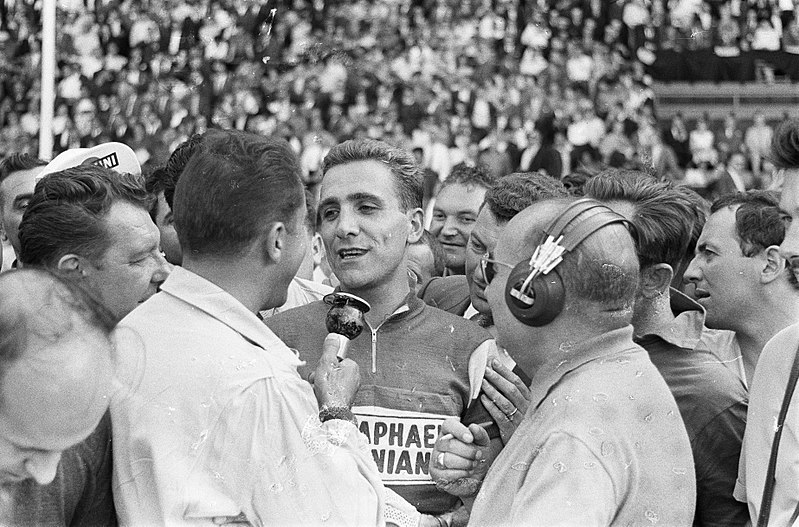The history of the Tour de France is far from a fairy tale. Even the lives of its greatest and most luminous stars are often overshadowed by tragedy. Among them are those who never had enough time to fully showcase their talents, like Roger Rivière (1936–1976).
Roger Rivière etched his name into cycling history by setting the hour record at 46.923 km in 1957. Equally skilled on both track and road, Rivière entered the Tour de France in 1960 as the favorite, especially in the absence of Jacques Anquetil. His impressive results in time trials—a crucial component of the race at the time—bolstered his reputation. However, in the early stages of the race, his teammate Henry Anglade outperformed him in the general classification.

Rivière, who had already competed in the previous year’s Tour and won a stage, was a brilliant but reckless talent. During the 6th stage, he launched an attack despite team manager Marcel Bidot’s advice to hold back. Bidot warned that his breakaway companions, Gastone Nencini and Jan Adriaensens, posed significant threats. Rivière ignored the caution, a decision that Anglade later criticized, suggesting it was the moment the French team lost their chances at victory that year.
Anglade’s prediction proved accurate in the mountains, where Rivière tenaciously chased every move made by Nencini, renowned as one of the best descenders of his era. This relentless pursuit led to a devastating tragedy on the 14th stage.
On the descent of Col de Perjuret, Rivière lost control, collided with a low wall, and plunged down the slope. The crash left him with a broken back, confining him to a wheelchair for the rest of his life. Rivière passed away at the age of 40, succumbing to throat cancer—a tragic end to a career and life filled with unfulfilled promise.